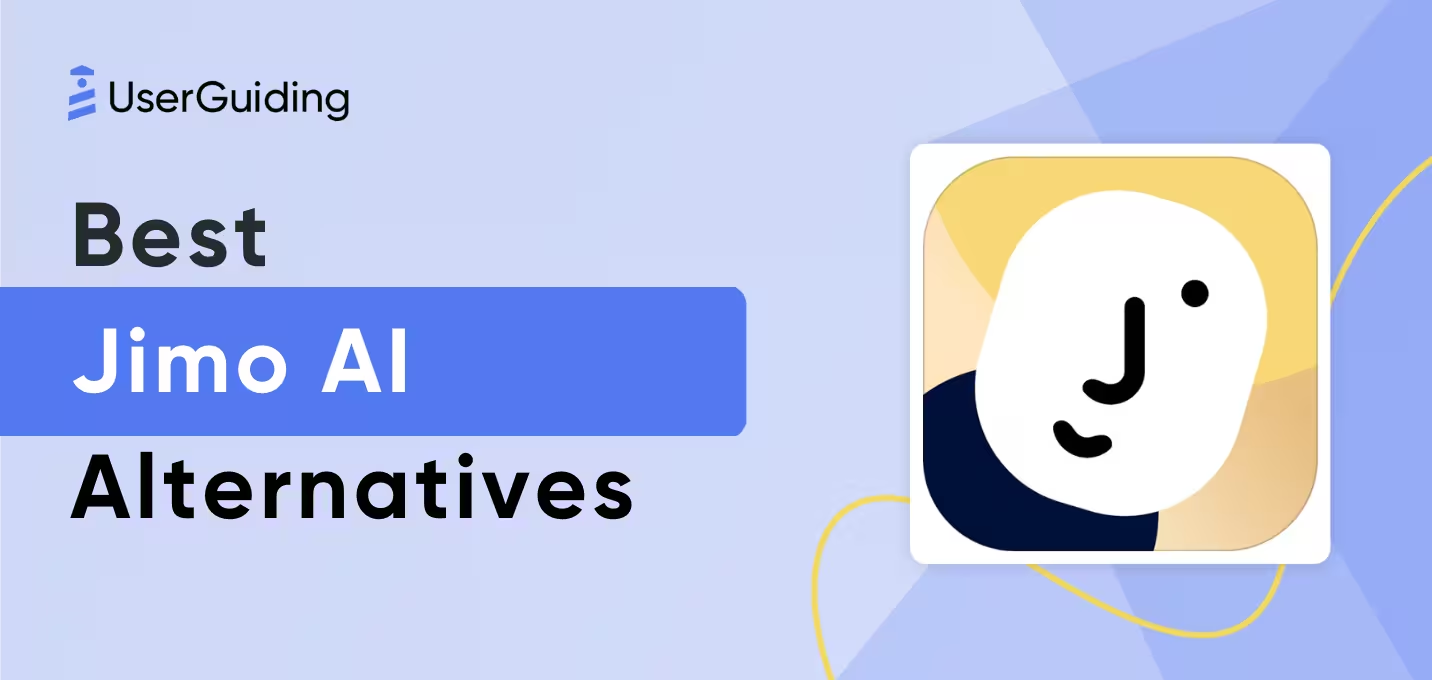

The strategic pursuit of revenue through upselling opportunities has emerged as a pivotal focus for product marketers and customer success managers alike.
72% of salespeople who upsell and 74% who cross-sell state that it drives up to 30% of their revenue, according to HubSpot.
By adeptly identifying user segmentation and seizing upon upsell prospects, you can bolster your financial performance and also cultivate deeper levels of customer satisfaction and loyalty.

Within this article, I will
- examine the advantages of deploying effective upsell methodologies that drive more revenue,
- showcase real-world triumphs, and
- furnish a detailed, step-by-step roadmap to empower you in uncovering customer value and harnessing upsell potentials to their fullest extent.
Here's the TL;DR in case you wish you had the time.🤓
What are upsell opportunities?
Upsell opportunities are when a business can encourage a higher-end purchase or more expensive product or service than a customer originally intended to buy.
Here are some examples of upsell opportunities to make it more clear:
- Offering a larger size of a product,
- Suggesting a more feature-rich version of a software product,
- Recommending additional services that complement the customer's original purchase.
The Importance of Upselling
Well, but, why bother?
Let's talk about the significant advantages that upselling offers before we move on:
You can increase your revenue
Upselling allows you to sell additional products or services to existing customers, maximizing revenue without acquiring new customers. It means lower expenses for sales and marketing efforts. Thus it brings a higher ROI.
You can enhance customer satisfaction
Relevant upsell suggestions tailored to the customer's needs are great to prove your commitment to customer success. It's like "Hey! I know what you need!" Then you just show up with a solution that will make things smoother. As a result, you can achieve higher satisfaction levels, build trust, and deliver value.
You can improve customer retention
A well-executed upsell offer strengthens the relationship between businesses and their customers, fostering loyalty and reducing churn rates. As people get even more value from your product, they will choose to stay on your side for a longer period.
A Successful Upselling Example for Inspiration

A good example case of successful upsell implementation comes from XYZ Corporation, a leading software-as-a-service (SaaS) provider in the e-commerce industry.
XYZ's sales team helped the company identify upsell opportunities by analyzing
- usage patterns,
- user personas,
- initial purchases,
- product usage, and
- customer feedback.
Leveraging personalized recommendations after the training session, and targeted marketing needs, XYZ's sales team increased its upsell revenue by 35% within six months while simultaneously helping customers achieve their goals.
Best Practices to Spot Upsell Opportunities
📌 Now, let's dive into the step-by-step guide to help you replicate such success:
Data-driven Upsell Opportunities
1- Analyze Customer Behavior
Track Usage Patterns:
Usage patterns can reveal which features customers utilize frequently and which remain untouched within the sales process. This provides valuable insights into areas where upselling may be effective.
Analytics tools can help you track session durations, frequency of logins, and specific actions taken within your product or service. So you can paint a comprehensive picture of user engagement.
No matter what your account size is, this data can uncover patterns indicative of upsell potential, empowering you to tailor your upsell strategies to match customer behaviors and preferences effectively.
Explore Purchase History:
An analysis of customers' past purchasing behaviors offer invaluable insights into their preferences and tendencies.
Identify which products or additional features they've previously bought, along with any accompanying upgrades or add-ons. So you can gain a deeper understanding of their evolving needs for your product or service.
Additionally, observing trends in spending habits, such as seasonal fluctuations or repeated purchases of specific product categories, provides further clarity and additional service, no matter what your account size is.
Measure Engagement Metrics:
Beyond merely analyzing transactions, it's crucial to evaluate the depth of customer engagement with your brand.
Especially for small businesses, this kind of active approach encompasses key metrics such as
- time spent on-site,
- click-through rates,
- product usage segmentation,
- the Net Promoter Score, and
- interactions with marketing materials.
By assessing these engagement signals and user data, you can gauge the effectiveness of your current strategies and pinpoint areas for enhancement.
Look for specific needs, additional services, and touchpoints within the customer journey where upsell messages could be seamlessly integrated, maximizing their impact and allowing you to know your customers better.
2- Utilize Predictive Analytics
Leveraging machine learning algorithms can revolutionize your approach to understanding customer needs and preferences, and increase revenue accordingly.
Harness the power of advanced data analytics to forecast the evolving requirements of your customer base with unparalleled accuracy thanks to visual dashboards.
You can also segment your current customers based on their propensity to purchase complementary products or upgrades. This creates tailored groupings that reflect distinct purchasing behaviors and preferences within your live marketing dashboard.
Proactive Customer Engagement
3- Conduct Regular Check-ins
Proactive communication with customers is pivotal in staying attuned to their evolving requirements.
By actively listening and reaching out during the free plan, you demonstrate a commitment to understanding their needs and preferences.
This proactive approach fosters a deeper level of engagement and trust during the annual plan too, laying the groundwork for effective upsell opportunities before the trial ends.
Furthermore, offering personalized recommendations based on their feedback and usage patterns enhance the customer experience.
4- Implement Triggered Emails
Implementing automated email campaigns triggered by specific current customer actions or milestones is a proactive strategy. It allows you to engage with your audience in a timely and relevant manner during the free trial.
Set up automated workflows to deliver targeted messages that align with customers' behaviors and preferences. So you can nurture relationships and foster a sense of connection.
These triggered campaigns enable you to seize upsell opportunities at pivotal moments in the customer journey. They can be compelling offers, premium features, and incentives tailored to individual segments.
Value-added Services
5- Offer Training and Support
Delivering comprehensive training resources and personalized support is essential for driving product adoption and maximizing customer satisfaction.
Through tailored guidance and assistance, you empower customers to fully utilize the features and capabilities of your product.
Additionally, highlighting the value of premium services or add-ons allows you to address specific pain points and enhance the overall user experience.
6- Implement Loyalty Programs
Reward loyal customers with exclusive benefits like discounts, upgrades, or early access to new features. So you can express appreciation for their ongoing support and also motivate continued engagement with your brand.
These incentives serve as a tangible acknowledgment of their loyalty, fostering a stronger connection and encouraging them to remain advocates for your products or services.
Furthermore, tiered loyalty programs provide a structured framework for nurturing customer relationships and driving repeat business and upsell signals.
Cross-selling Opportunities
7- Identify Complementary Products
Analyzing product portfolios is key to identifying natural cross-selling opportunities within your offerings.
By thoroughly examining the range of products or services that help you offer value, you can pinpoint complementary items that are likely to appeal to existing customers.
Additionally, bundling related products or services allows you to create compelling value propositions that resonate with customers.
8- Leverage Upsell Promotions
Designing targeted promotions and discounts tailored to cross-selling is a potent strategy for driving additional purchases from existing customers.
These promotions leverage customer preferences and behaviors, maximizing the likelihood of successful cross-selling opportunities.
Moreover, implementing upsell prompts during the checkout process serves to further capitalize on customer interest and readiness to buy, significantly boosting conversion rates and revenue.
Creating More Upsell Opportunities & Final Word
Incorporating the aforementioned strategies is a good practice to construct a sturdy framework for spotting and leveraging opportunity assessment.
However, the user journey doesn't culminate here.🚀
The key moment is when you continuously monitor and refine your upsell processes, leveraging loyal customer feedback and market trends as well as logical upsell opportunities.
By staying attuned to customer needs and preferences, you can maximize upsell potential and foster long-term profitability for your business.
Before You Go

When this proactive approach includes customer support and customer service teams, it enables you to introduce new products or advanced features at opportune times, further enhancing the overall user experience and solidifying customer loyalty and retention.💡















.svg)
.svg)
.svg)
.svg)
.svg)











.svg)
.svg)




.png)















